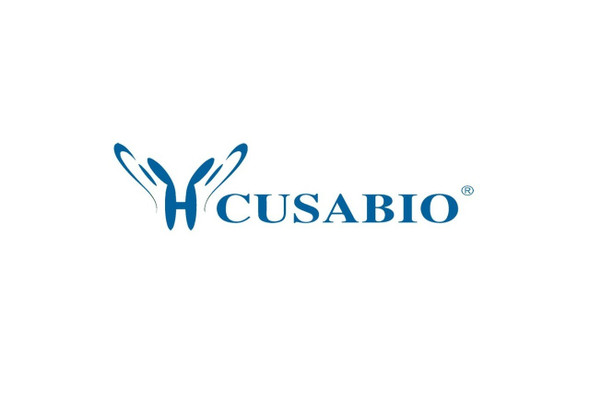Cusabio Polyclonal Antibodies
CD44 Antibody | CSB-PA644696
- SKU:
- CSB-PA644696
- Availability:
- 3 to 7 Working Days
- Size:
- 100ul
Description
CD44 Antibody | CSB-PA644696 | Cusabio
CD44 Antibody is Available at Gentaur Genprice with the fastest delivery.
Online Order Payment is possible or send quotation to info@gentaur.com.
Product Type: Polyclonal Antibody
Target Names: CD44
Aliases: LHR; MDU2; MDU3; MIC4;
Background:
Receptor for hyaluronic acid (HA) . Mediates cell-cell and cell-matrix interactions through its affinity for HA, and possibly also through its affinity for other ligands such as osteopontin, collagens, and matrix metalloproteinases (MMPs) . Adhesion with HA plays an important role in cell migration, tumor growth and progression. Also involved in lymphocyte activation, recirculation and homing, and in hematopoiesis. Altered expression or dysfunction causes numerous pathogenic phenotypes. Great protein heterogeneity due to numerous alternative splicing and post-translational modification events.
Teriete P., et.al (2004) Mol. Cell 13:483-496 Bartolazzi A. (2003) Melanoma Res. 13:325-337
Liu T.et.al (2005) J. Proteome Res. 4:2070-2080
Isotype: IgG
Conjugate: Non-conjugated
Clonality: Polyclonal
Uniport ID: P16070
Host Species: Rabbit
Species Reactivity: Human, Rat
Immunogen: Peptide sequence around aa.734~738 (Q-N-V-D-M) derived from Human CD44.
Immunogen Species: Human
Applications: ELISA, WB, IF
Tested Applications: ELISA, WB, IF;WB:1:500-1:1000, IF:1:100-1:200
Purification Method: Antibodies were produced by immunizing rabbits with synthetic peptide and KLH conjugates. Antibodies were purified by affinity-chromatography using epitope-specific peptide.
Dilution Ratio1: ELISA:1:2000-1:10000
Dilution Ratio2: WB:1:500-1:1000
Dilution Ratio3: IF:1:100-1:200
Dilution Ratio4:
Dilution Ratio5:
Dilution Ratio6:
Buffer: Supplied at 1.0mg/mL in phosphate buffered saline (without Mg2+ and Ca2+), pH 7.4, 150mM NaCl, 0.02% sodium azide and 50% glycerol.
Form: liquid
Storage: Upon receipt, store at -20°C or -80°C. Avoid repeated freeze.
Initial Research Areas: Immunology
Research Areas: Cancer;Immunology;Stem cells






